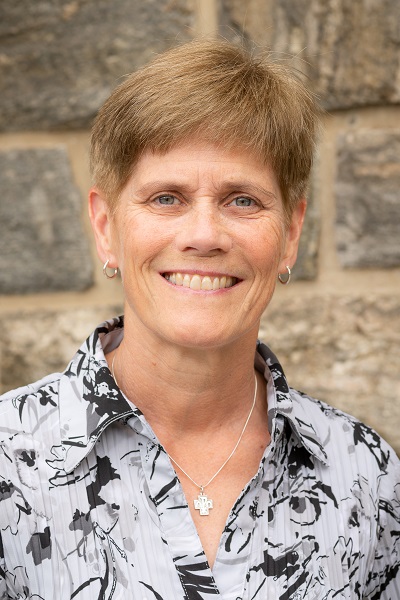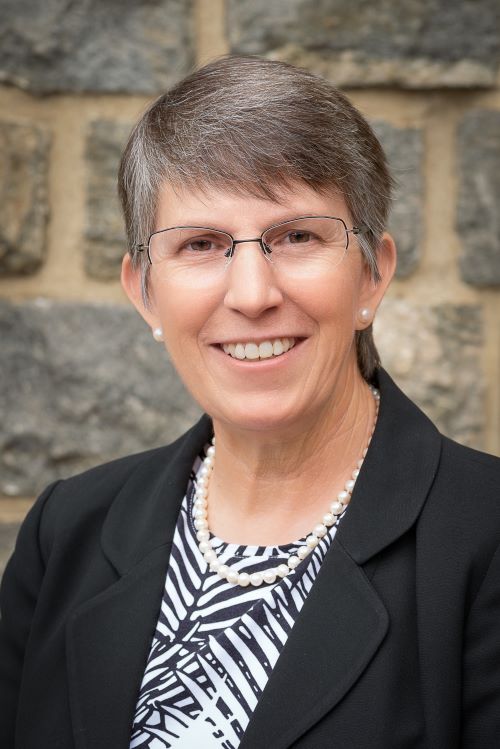The Power of Women's Leadership Development
By Thayer Leadership's Women Faculty, Tuesday, August 24, 2021
We asked the world-renowned women faculty at Thayer about why leadership development for women is vital for the long-term success of any organization. They have each personally benefited from women’s leadership development and are passionate about delivering support, validation, and tools to develop resiliency, self-trust, and success for other women leaders.
Women are great models of leadership and can often be better mentors and relationship builders than men. Women bring a fresh outlook and perspective, with a diversity of thought based on their own experiences. They often wear multiple hats – as leaders, wives, and mothers, just to name a few roles – so women have the unique ability to be agile and juggle a lot of priorities. They are also strong at empowering, championing, and celebrating others. According to myriads of research, women leaders also develop higher job satisfaction among their teams, promote gender diversity, bring a higher level of dedication to the job, and deliver different insights and powerful perspectives to help organizations grow.
Women are hungry to break the glass ceiling. They are dedicated, passionate about meaningful work, and want to make a positive difference in the world. Women are inspired to support gender diversity and champion fellow women, as this has helped in the past to gain new leadership opportunities for themselves. In the current post-pandemic environment, the ability to do remote work and have flexible schedules may allow more time for development of women leaders who are juggling multiple balls as corporate leaders, wives, mothers, and other roles.
Why should organizations invest in women leaders? Why is women's leadership development important?
Colonel (Ret.) Diane Ryan, Ph.D. –
Gender is perhaps the most salient factor in our personal identity and society has placed different expectations on whether a person happens to be born as a woman or a man. Although great leadership has no gender, the way we interact with the world is often different as a result. Women are not always given the same opportunities to develop their capabilities as men. However, their unique perspectives are invaluable in the workplace and the benefits of leveraging their immense and often untapped talent are well documented. It is as simple as this: when you develop women leaders, you are realizing the full potential of your business.
Brigadier General (Ret.) Becky Halstead –
First of all, leader development at large, regardless of gender, is important. Leadership development helps each of us find a better version of ourselves, since a better ‘me’ is a better ‘we’. It is critical to keep us growing, learning, practicing, and contributing as leaders.
By participating in a women’s leadership development program, the shared experiences are more powerful and impactful. Women face similar challenges like marriage, childbearing, being the minority representation on the team, so coming together as a group they can help each other find creative, relatable, and useful solutions to personal and professional situations. An all-women’s group breaks down barriers and intimidations, resulting in open, candid conversations. It provides a safe environment to be your authentic self without judgment. In this setting, there is a greater tolerance for criticism, yet a greater willingness to look hard at oneself and grow into a better leader. Women’s leadership programs create lasting relationships among professional women – where they continue to network, mentor, and encourage each other for years to come.
Brigadier General (Ret.) Maureen LeBoeuf, Ed.D. –
Leadership development is important for everyone, however, it’s especially important for women. Although women make up half of the workforce, they are underrepresented at the higher levels in organizations. Women need to be able to look up the ranks and see leaders who look like them, to see what is possible. Too often, women focus on others and not on self. Now is the perfect opportunity to focus on yourself.
Colonel (Ret.) Donna Brazil, Ph.D. –
Some people are more natural at leading than others, but it is an area where we can and should all seek to improve. “Natural” athletes still practice their sport and work on numerous ways to get better at their craft; “gifted” musicians still spend thousands of hours practicing and honing their skills. The same should be true for leaders. I believe that one obstacle is that leaders often see themselves as something else first and leaders as a subtask. They are a CFO, a CHRO, a… who happens to lead others… so they likely spend more time staying current on their job than on leading.
I see no difference in the need or methods of leader development for men and women. As leaders, we all must assess our strengths and our gaps, work to develop learning and developmental experiences that will help us to close those gaps and seek support in navigating the developmental experience. Formal leader development sessions help us to walk through that process.
That said, attending a session comprised only of women and taught by women is a unique and positive experience because for many, it is one of the few times they have shared space and time with other, similarly accomplished, and talented women. I spent 35 years in the U.S. Army surrounded by thousands of leaders, 90% of whom were men. Many of them were wonderful mentors and role models for me, but I rarely had the opportunity to learn with other women. When I did; it was truly far more impactful and powerful for me.
What is special about Thayer's women leadership programs?
Brigadier General (Ret.) Becky Halstead –
Thayer’s women leadership programs are uniquely designed with a primary focus on leadership development for women VERSUS a primary focus on women leadership – it is not about how to lead as a woman, it is about coming together as women and learning about how to better lead ourselves and others. Participants learn from the diverse experiences of young to seasoned women leaders. The programs are designed to develop the “whole leader” through a multi-faceted mental and physical experience that is transparent, authentic, and relatable – to carve out your leadership identity, your leadership style, your purpose, your journey. It is a powerful time to reflect, share, and learn together with other women leaders.
The women faculty who leads Thayer’s women’s programs are seasoned, both with decades of leadership experience and with facilitating women’s leadership development programs. It is a valuable opportunity to create lasting relationships among professional women, where you continue to network, mentor, and encourage each other.
Colonel (Ret.) Pilar McDermott, Ph.D. –
The unique element of Thayer's women leadership programs is working with women leaders who have had successful military careers. Our careers have spanned decades, beginning when we were the only women in the room and ending when the U.S. Army recognized the contributions of the Americans who served in its ranks, inclusive of gender, race, ethnicity, and sexual orientation. The women faculty at Thayer offer support and insight to women whose professional experience may resemble our early years and to women in global and diverse organizations.
Lieutenant General (Ret.) Nadja West –
Women's leader development is important for so many reasons:
1. Good leadership is needed in every sector, and at every level of society. From families, schools, communities, and volunteer organizations; to small businesses, corporations, military and government, good leadership is vital to the success of each one of those entities, to name a few.
2. Women comprise roughly 50% of the world’s population. That is a tremendous amount of talent that needs to be cultivated to address the challenges, solve the problems, and identify the way forward to ensure that humanity thrives.
3. Women who have had formal leader development opportunities excel in all environments. As a person who had the privilege of attending the U.S. Military Academy at West Point and serving for over 30 years in our nation’s Army, I, as well as my fellow women Soldiers, benefited from the Army’s leadership training and experience.
In large numbers, we all go to lead in society. With the challenges we face on a global scale, we need as many women and men as possible who can lead us into the future.
Colonel Pilar McDermott, Ph.D.
 ExpertiseLeadership, history, staff ride leader ExperienceColonel McDermott is a soldier-scholar who served in a variety of command and staff positions, stateside and overseas, during her 27-year Army career, including command of Bravo Battery, 1st Battalion, 30th Field Artillery Regiment, the largest artillery battery in the Army at the time. Some of her... Read More +
ExpertiseLeadership, history, staff ride leader ExperienceColonel McDermott is a soldier-scholar who served in a variety of command and staff positions, stateside and overseas, during her 27-year Army career, including command of Bravo Battery, 1st Battalion, 30th Field Artillery Regiment, the largest artillery battery in the Army at the time. Some of her... Read More +
Colonel Donna Brazil, Ph.D., PC
 Expertise:Leader development, resilience, leadership and leadership coaching Experience Dr. Brazil retired from the United States Army as a Colonel with over 31 years of leadership experience. She served in wide variety of leadership assignments to include executive officer and operations officer for a 1000-person logistics unit, commander of a transportation... Read More +
Expertise:Leader development, resilience, leadership and leadership coaching Experience Dr. Brazil retired from the United States Army as a Colonel with over 31 years of leadership experience. She served in wide variety of leadership assignments to include executive officer and operations officer for a 1000-person logistics unit, commander of a transportation... Read More +
Brigadier General Maureen LeBoeuf, Ed.D.
 ExpertiseLeadership development, wellness, keynote speaker, executive coach ExperienceMaureen spent 28 years in the U.S. Army, where she held various staff and leadership positions, as well as flying UH-1 helicopters in the continental United States and Europe. Most noteworthy was her assignment as the Professor and Head of the Department of... Read More +
ExpertiseLeadership development, wellness, keynote speaker, executive coach ExperienceMaureen spent 28 years in the U.S. Army, where she held various staff and leadership positions, as well as flying UH-1 helicopters in the continental United States and Europe. Most noteworthy was her assignment as the Professor and Head of the Department of... Read More +
Brigadier General Rebecca Halstead
 ExpertiseStrategic level leadership, risk management, diversity and inclusion, coaching and mentoring ExperienceBecky is a 1981 graduate of the United States Military Academy and achieved an historic milestone as the first female graduate of West Point to be promoted to General Officer. She was the senior Commanding General (equivalent to CEO)... Read More +
ExpertiseStrategic level leadership, risk management, diversity and inclusion, coaching and mentoring ExperienceBecky is a 1981 graduate of the United States Military Academy and achieved an historic milestone as the first female graduate of West Point to be promoted to General Officer. She was the senior Commanding General (equivalent to CEO)... Read More +
Colonel Diane Ryan, Ph.D.
 ExpertiseLeader development, character-based leadership, diversity and inclusion, ethical decision making. ExperienceDiane was a U.S. Army officer for 29 years. She served in a variety of command and staff assignments both stateside and abroad. Diane is a noted expert in leader development and mentoring. During her last combat assignment with the... Read More +
ExpertiseLeader development, character-based leadership, diversity and inclusion, ethical decision making. ExperienceDiane was a U.S. Army officer for 29 years. She served in a variety of command and staff assignments both stateside and abroad. Diane is a noted expert in leader development and mentoring. During her last combat assignment with the... Read More +






